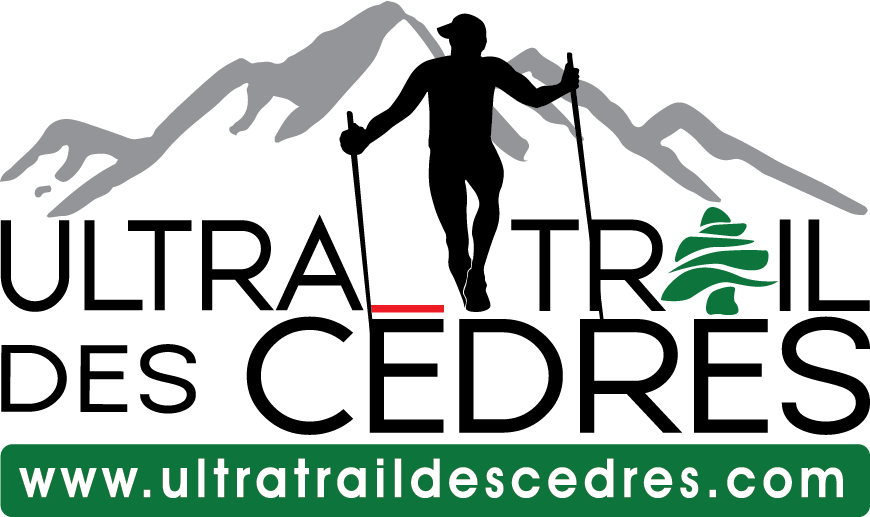
Why ULTRA Running ?
Max has never been a pure runner, but He has always loved long distance events. Max has completed the 42.195 km distance numerous times and in several cities like New York, London, Stockholm and Athens (the original one, starting from the village of Marathon). This, of course, includes Beirut which he has run close to a dozen times -and counting. Most of these were run for charity.
An Ultra-marathon is any race longer than the conventional distance of 42.195 km. Ultras, as they are commonly known, have become very popular in many European countries and are drawing ever more participants -especially those organised on trails in spectacular natural settings.
Ultras vary greatly in length. Some, such as the UTMB (France), the Badwater (USA), the Spine Race (UK) and the Spartathlon (Greece) are hundreds of miles long, to be attempted only by the experienced and seriously committed ultra-runner. Still, plenty of ultra-marathons lie in the 45-60 km range and are way more achievable than most people think.
Why (Ultra Running in) Lebanon?
To begin with, if you haven’t been to Lebanon, you need to forget everything you’ve seen or heard on the news about this place. Yes, there was a time when the Lebanese were dragged into a vicious war (mostly for others) and but this was long ago. More recently the economic woes and that Port of Beirut August 4, 2020 blast made the country yet more infamous. But that’s not what one should think about this place.
Instead, remember that this country is blessed with the Mediterranean on one side and, just 50 km inland, 3,000 meter snow-capped mountains. Remember also that in between you have everything from beautiful villages, and history-filled archaeological sites, to friendly and welcoming people dotted with an impressive ‘joie de vivre’ together with sights, smells, and sounds you’ll find hard to forget.
ULTRA-MARATHON: the bare essentials
1. More is less: Ultramarathons are arguably easier and better for you than marathons
Don’t put your name down for a 100-mile Ultra for the first time but rest assured that entry-level 40 or 50 km Ultra trail races on undulating, soft terrain at a gentle pace won’t batter your body and joints in the same repetitive way as 42 km on flat, brutal tarmac – a much harsher surface for your body.
Also, varied terrain gives your body more of an overall workout, soliciting and strengthening different muscles.
Then there’s the mental side. Numerous studies show how good exercising is in nature for us humans. Exerting oneself in natural surroundings feeds into our biophilia effect – our innate desire to be connected to nature and its ability to lift us psychologically.
In fact, we’re likely to feel better after our first ultra trail event than we did after our first marathon.
2. “Work hard, play hard”… and by the same token, “Run ultra, eat extra”!
Don’t put your name down for a 100-mile Ultra for the first time but rest assured that entry-level 40 or 50 km Ultra trail races on undulating, soft terrain at a gentle pace won’t batter your body and joints in the same repetitive way as 42 km on flat, brutal tarmac – a much harsher surface for your body.
Also, varied terrain gives your body more of an overall workout, soliciting and strengthening different muscles.
Then there’s the mental side. Numerous studies show how good exercising is in nature for us humans. Exerting oneself in natural surroundings feeds into our biophilia effect – our innate desire to be connected to nature and its ability to lift us psychologically.
In fact, we’re likely to feel better after our first ultra trail event than we did after our first marathon.
3. Seriously: You can run really slowly
In ultras, the tortoise beats the hare. The key to covering 60+ km without collapsing in a heap is taking your time. As no one in your office knows what a good time is for a 60 km ultra, clock-watching and personal bests are largely forgotten. Though some people race hard at the front, most just relax, enjoy the views, socialise and eat a lot of cake. It’s amazing how well and for how long your body can perform given half a chance!
4. Walking is basically encouraged
Here’s another secret: most ultra runners walk a lot. Uphills tend to be walked to preserve leg muscles. Plus, it can all get a bit tiring, so after six hours of running, a walking break is not only understandable but advisable. And, since you’ll be up in the hills somewhere, there are no crowds to mock you for taking a breather.
5. You can even use trekking poles
It’s a bit controversial and some races don’t allow them, but poles can help your posture and muscle preservation. Some races also have a mandatory kit list, usually including a map, compass, phone, first aid, spare clothes, food and drink. So while you may feel a bit like you’re back in Boy Scouts, it’s heaven for kit collectors (and outdoor gear shops).
6. You don’t need to train all that hard
For shorter races you can get by on running 45 to 55 km a week, with two or three weeks nearer the 55 to 60 km total. Most ultrarunners train much as they would for a marathon, but make the long run a little longer, or run some back-to-backs – meaning a longer run followed by another the next day.
7. It’s mental
Some say completing an ultra is 50 per cent in the mind; others say it’s as much as 90 per cent. Either way, it’s much more about your levels of determination than about the size of your quads or calves. Most of it is in the mind.
8. You’ll probably cry
Over several events, you’ll likely experience chafing. Vass those nips! – and maybe your bathing suit area. You’ll also possibly suffer from tummy trouble, hallucinations, while losing a few toenails (a.k.a. badges of honour). It’s not uncommon for ultra-runners to cry – although not because of the pain they’re in. Going without sleep can run emotions raw; couple this with the euphoria of completing a challenge you didn’t know you were capable of, and it’s easy to trigger the waterworks (of joy, that is.)
9. You’ll make lots of friends
Long distance ultra-running actually makes you feel very social. You have to concentrate on the terrain underfoot so much that you spend more time in the moment than usual. This has the effect of making you happier and more talkative. Making new friends is almost inevitable and you’ll be swapping life stories before you know it. Just try to befriend ultra-runners with good navigation skills!
10. Try not to mention the MdS
Ultra-runners are a massively welcoming bunch. But if there’s one thing most of them can be snobby about it’s the incredibly expensive, more-famous-than-it-deserves-to-be, not all-that-demanding Marathon des Sables (MdS). There are many, many more spectacular, impressive, interesting and demanding events around. It’s a bit like asking a skilled mountaineer if they’ve climbed Everest. Most don’t even want to! 🙈
UTC Sponsors


